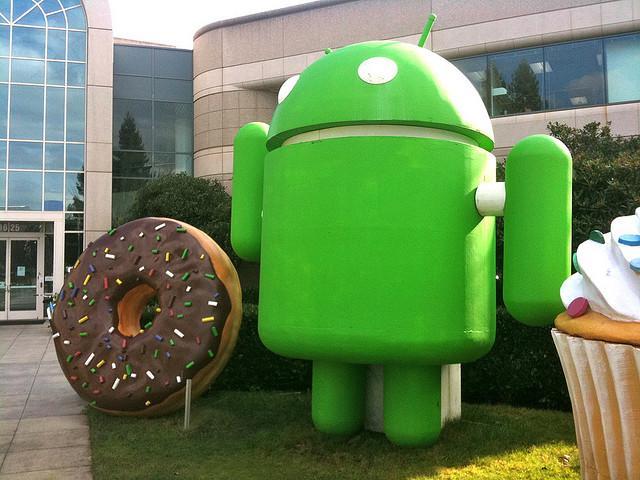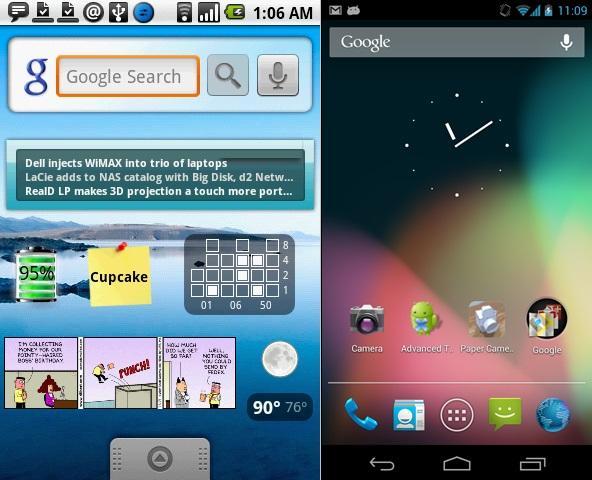
Throughout my time in the mobile industry, both as a hobby and as a career, I’ve had the privilege of watching different platforms being brought into existence and grow to be the strapping young mobile computing systems we know today. iOS, Windows Phone (once Mobile), Android, and BlackBerry have all come a long way from when they first started. I’ve tried my hand at most of them (sans Windows Phone – for now) and I have to say, out of all of the platforms I am most impressed with the progression of Android, and I think I have to contribute that with how open Google is as a company.
In this industry you virtually cannot ignore Google. Even if you don’t use Android or any Google Apps there’s just no way that you go more than two days without hearing about something new coming from the Mountain View company, and that’s not necessarily a bad thing. In fact, I really enjoy the fact that Google is, while I wouldn’t say completely transparent, at least somewhat translucent in their business practices and goals.
I like Android. Well, let me correct that statement: I like Android now. If you had asked me in 2007 or 2008 what I thought of the platform I would have probably turned my nose up at the idea because at the time, to a fad-embracing teenager, Android was just not cool. It was ugly, and more importantly, it wasn’t an iPhone. But as I grew older and began to see the true difference between Android and iOS it dawned on me that Android wasn’t supposed to be like iOS. It was completely different, and it almost seemed like it was up to us, the average customer, to step outside of the box and help create this platform to become what it is today. If you had ever wanted to get into developing, these early stages of Android was (and is) your chance to get your foot in the door.
For me, Google makes loving Android easy – and I don’t mean loving Android as in actually loving the platform, but more so the motive behind Android. It’s an ever-expanding platform with a warm and welcoming company behind it. Almost everywhere you turn on a Google website there’s an option to give them feedback whether it’s through something as traditional as e-mail or as modern as social networking. Google actively encourages you to report bugs and make suggestions about its products, which in turn paints them in a more favorable, approachable light.
I kind of see it like this: a company like Apple, in regards to smartphone technology, was basically born with the world at its fingertips. The iPhone was a well-made product that was released at the right time. The iPhone really didn’t have to work that hard to get to where it needed to be today – hence the lack of desire for change (because while the profits may be dwindling, the line is still doing extraordinarily well for itself). They got lucky and got it right the first go-around. Google, on the other hand, wasn’t nearly as successful with its first attempts at Android as Apple was with the iPhone. While we can step aside the release of Android 1.0 (Astro) primarily because it wasn’t available commercially, we can look at Android version 1.5 (Cupcake) and see that the baby version of Android was a far cry from the stability of iOS. It was buggy, laggy, and there probably wasn’t “an app for that”. Android had to grow to succeed, and has continued to grow up until this point, and will continue to grow from this point forward. In turn, this growing process probably made Google seem a little more humble than its main competitor by being more open to constructive criticism.

I’ve come to conclusion that while Android has obtained much success from being perceived as a fairly open platform, it has also gained a lot of success from Google’s open business practices as a company. You can how many changes Google has put into Android by comparing Cupcake to Jelly Bean – that’s 4 years of technology right there, and it’s actually pretty amazing how far it has come. But it wouldn’t have gotten that way if it hadn’t been for everybody involved with Android – users, developers, manufacturers… everybody, really.
I just find it interesting how two completely different business practices (Apple, Google) have found large scale success through different strategies. Apple remains a constant, but Google has changing variables. Both produce desirable results. You know what they say, there’s more than one way to skin a cat. That’s actually a pretty disgusting phrase, but you know what I mean.
I just happen to admire Google’s methods to attaining success. I find Google to be humble and accepting of change, something that I think is necessary in order to keep carrying on success and progression year after year. It’s because of this that I see Google staying successful for years to come, and I look forward to the future technology we will see from them.
Image via Flickr